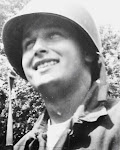BAGHDAD — In a different time, in another country, where violence and terror did not stalk the streets, Dr. Amir Hussain could practice psychiatry the way he once hoped to.
http://www.nytimes.com/2008/05/20/world/middleeast/20psychiatry.html?ref=worldspecial
He can see it in his mind: the clean, tastefully decorated hospital wards, the well-stocked pharmacies, the gleaming laboratory equipment, the thickly carpeted consulting rooms, the halfway houses and outreach teams that help chronically ill patients re-establish their lives outside the hospital.
He has witnessed such things firsthand. In 2005, he left Iraq to spend five months in England, learning specialized care for the elderly and watching psychiatrists at work.
But Dr. Hussain, who entered his profession at a time when Iraqi doctors were among the most sophisticated and highly trained in the Middle East, is caught in a time warp in a war-torn land where knowledge and sophistication have been largely overwhelmed by third-world decay, and ancient equipment has plunged some treatments into a “One Flew Over the Cuckoo’s Nest” barbarism, despite the best intentions.
He cares for patients whose illnesses are often set off or worsened by the mayhem around them, who crowd into his tiny office at Ibn Rushid psychiatric hospital in central Baghdad, accompanied by their mothers and aunts, wives and brothers.
The litany of death and misery they recite no longer shocks him.
“We are used to hearing it, and I think our emotions are frozen,” he says.
Besides, his own experiences are not that different. Like many other Iraqis, he suffers from some symptoms of traumatic stress: insomnia, anxiety, a tendency to start at loud noises.
“The traffic jams, this is a stress, then all of a sudden something explodes,” he said.
He tries when he can to listen to relaxing music. The trips to the countryside he once enjoyed are no longer an option. The roads are too perilous.
Click on link to continue reading full New York Times story.
Tuesday, May 20, 2008
WAR TAKES TOLL ON BAGHDAD PSYCHIATRIC HOSPITAL
Posted by
Bill Corcoran
at
3:24 AM
![]()
![]()
Subscribe to:
Post Comments (Atom)


No comments:
Post a Comment